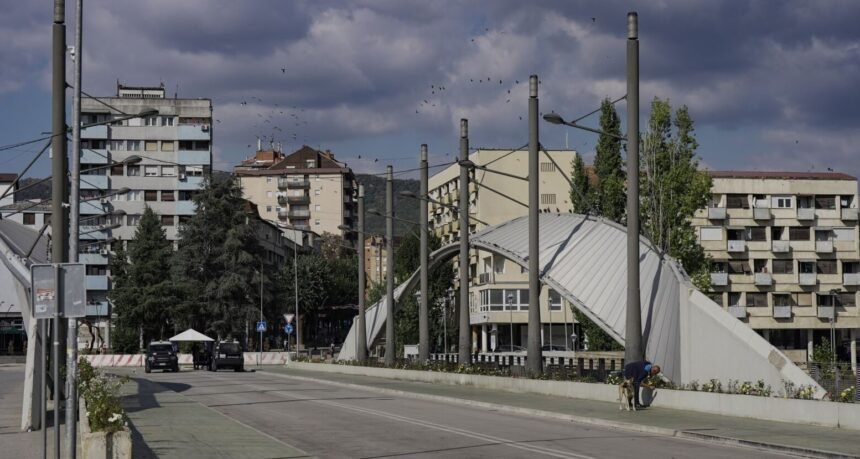Plans by Kosovo’s acting government to build two new bridges over the Ibër River in divided Mitrovica have sparked strong reactions from local Serbs, who view the move as a political provocation rather than a means of connecting communities. While Pristina authorities claim the projects aim for “integration and development,” some citizens and local representatives warn that the decision, made without community consultation, could further escalate tensions between the city’s north and south.
Government’s Stance vs. Local Concerns
Kosovo’s acting government states the project was initiated at the request of both municipalities—North and South Mitrovica—following the establishment of a Joint Mitrovica Board. The Ministry of Environment, Spatial Planning, and Infrastructure (MMPHI) is set to finance and implement these projects, which include pedestrian and vehicle bridges, to facilitate free movement. The government also reiterated its unchanged stance that the main Ibër Bridge should be fully open to traffic, believing the new bridges will contribute to cooperation and free movement.
However, residents like Marina from North Mitrovica consider it a “hasty decision” by Kosovo authorities to “demonstrate power.” She argues the bridges are unnecessary and merely serve to “instill paranoia in the Serb population of the north.” Ana describes the idea as “completely meaningless,” viewing it as a pre-election promise rather than genuine care for citizens.
Lack of Consultation and EU Disavowal
An illustrative photo from acting Prime Minister Albin Kurti’s Vetëvendosje Movement shows the bridges positioned on either side of the main bridge, which is part of the Kosovo-Serbia Freedom of Movement Agreement. However, the EU told Radio Free Europe that it is neither involved in nor informed about this project, emphasizing that any decision on Ibër River infrastructure must be made carefully and inclusively, with full involvement of all affected communities. Kosovo’s acting government did not comment on the EU’s stance.
Priorities and Previous Bridge Opening Attempts
Acting Infrastructure Minister Liburn Aliu stated the project “will facilitate citizen movement and serve as infrastructure for communication, integration, and development.” However, Serb municipal councilor Dušan Milunović from North Mitrovica believes the bridges are unnecessary, claiming no citizens were consulted and the issue wasn’t discussed in the municipal assembly. He argues there are far more pressing local issues, and building these bridges “will negatively impact the overall situation.”
Skender Sadiku, Deputy Speaker of the North Mitrovica Municipal Assembly, supports bridge construction as a symbol of connection but agrees that current priorities lie elsewhere. “It’s not the right time,” he said, noting upcoming local elections and pointing out more urgent needs like cultural centers, schools, and displaced persons. He believes central and local authorities should have consulted citizens, and that the main bridge should be opened first.
Previous attempts to open the main Ibër Bridge for traffic last summer were opposed by the local Serb population and the international community. KFOR, NATO’s mission in Kosovo, stated that any decision should be made within the EU-mediated dialogue between Kosovo and Serbia. Then-U.S. Ambassador Jeffrey Hovenier warned of a real risk to NATO soldiers, including Americans. Prime Minister Kurti later stated his government would continue consultations, emphasizing the issue was not directed against anyone. The main bridge, a site of post-war ethnic conflicts, remains closed to vehicles despite a 2014 agreement and a 2018 “revitalization” investment of €1.5 million.







